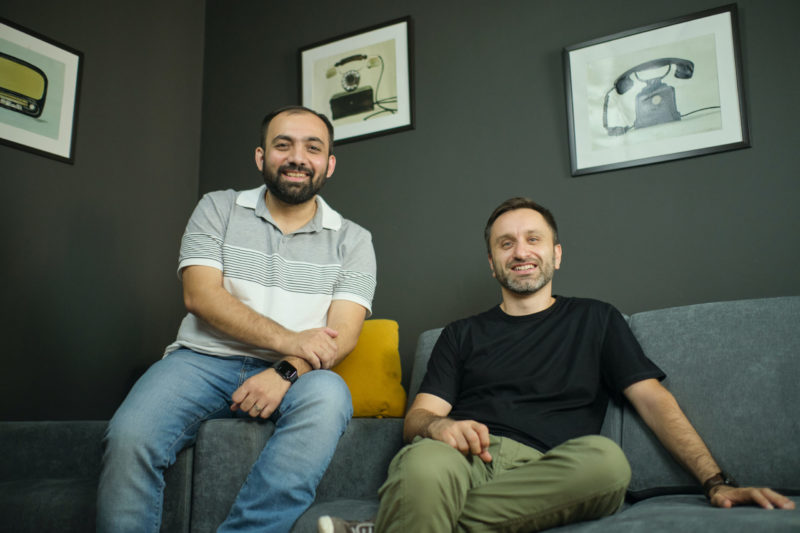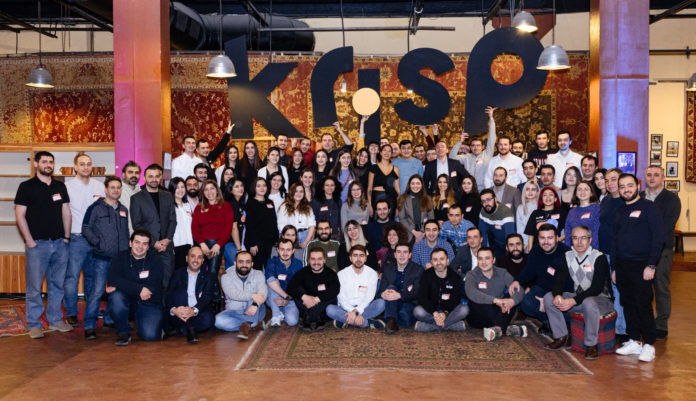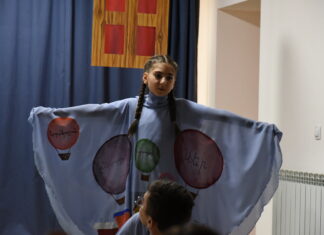YEREVAN – Nothing would probably feel more natural than having a remote interview with a high tech professional. And what could make it even more interesting is that no sound or even a whisper can interfere in our conversation thanks to a very pertinent application named Krisp – a noise-cancelling app which removes all the background noise during the call. My interviewee is Davit Baghdasaryan, the cofounder of Krisp, who exactly four years ago in June of 2017, joined his knowledge and experience with that of another tech entrepreneur, Arto Minasyan, to launch this revolutionary product.

The two met in San Francisco, where Davit was working at Twilio, a telecommunication company, and had been living in Silicon Valley for eight years at the time. “I was traveling back and forth between Armenia and US and because of the time difference I had to work in the evenings. In Armenia, summer evenings are full of noise. I always wished to have a button that I could click and all the noise would go away. And that’s how the idea was born to create Krisp,” Davit tells me, using his own creation in Armenia.
Krisp is a simple application that can work on any device, giving the communicators much-desired privacy. But there is much innovation and complex technology behind it. As Davit says: “Everything is based on machine learning or, as people like to call it, artificial intelligence. With this we pioneered the use of machine learning to recognize human voice and remove other noises in real time.” Serving over 1500 enterprise customers inside and outside the US, Krisp was honored with five prestigious awards from Forbes and Times. Its most recent recognition is the Webby Award, for excellence on the Internet, presented annually by the International Academy of Digital Arts and Sciences.
Krisp had come just in time when the pandemic hit the business world in 2020, forcing everyone to find new working strategies while being in lockdown. Davit says that company’s revenues grew 13 times and the customer base around 10 times during the pandemic. The affordable price allowed companies and even individuals to use it widely (the minimum monthly plan costs only $5).
More than one year after the Covid-19 pandemic the world is adapting new working models: some companies are creating hybrid offices, where the employees can choose to work from home or in the offices. Others are creating open-office concepts where a noise -free environment is simply vital. Davit sees lots of opportunities for Krisp in all these models, especially when the company is working on new “very cool features” like sentiment analysis. This feature will allow to distinguish the exact emotions of the participants during the conversation. The feature is intended for various business environments that are dealing with customer service as call centers.
With $18 million in investments, Krisp is primarily focused on the US market. However, the company has a huge significance for Armenia. Davit is convinced that through a world-renowned company, Armenians can prove to themselves and to everyone else that they are a nation with developed scientists in technologies, mathematics and physics. “Krisp is not the only one, but definitely an example of talent that exists in Armenia,” Davit adds proudly.








